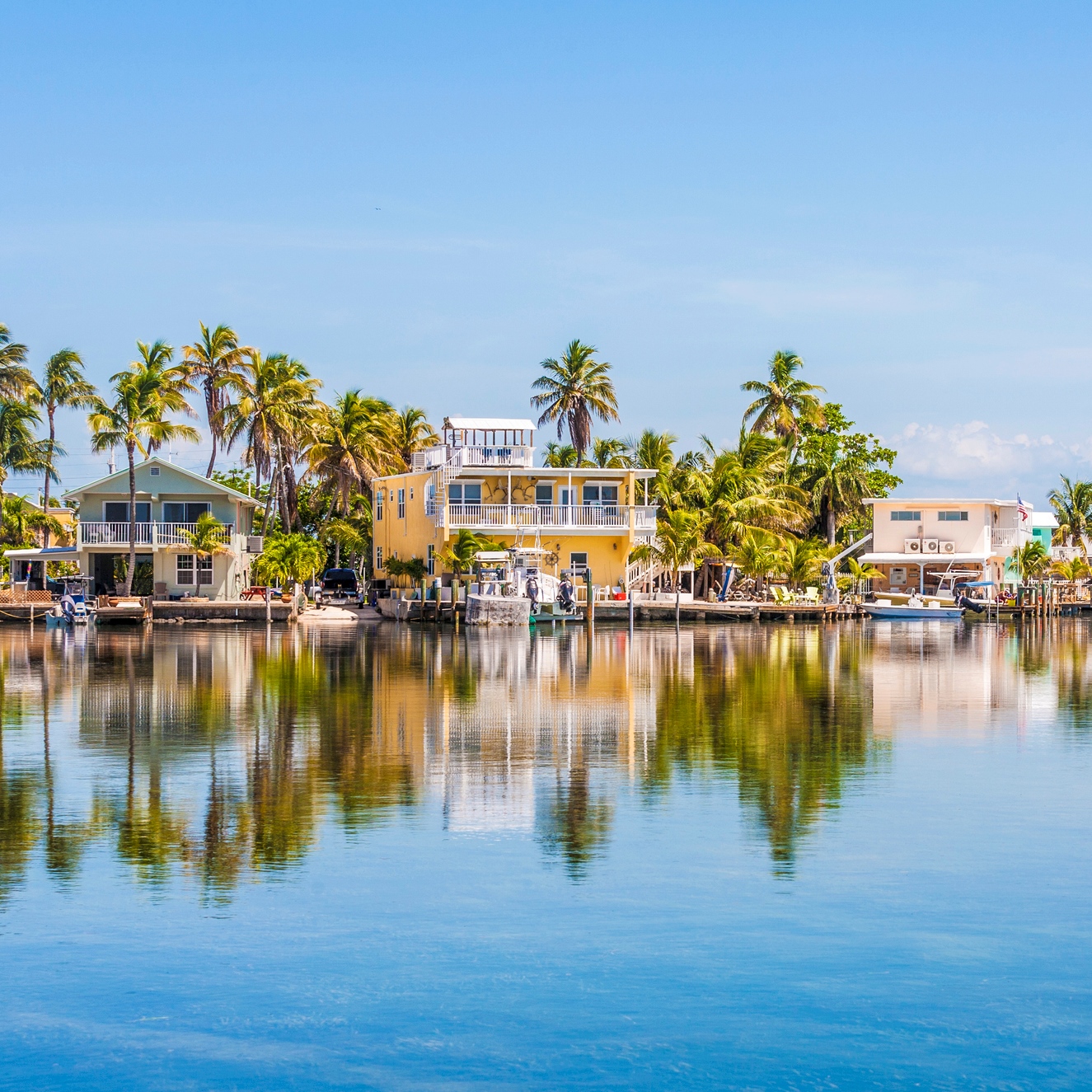Housing
With 2.8 Million Homes, Florida Has Most At-Risk Properties of Any State

Published:
Last Updated:

The state of Florida has more homes at risk for storm surge, 2.8 million, than any other state, according to information from property data provider CoreLogic, as Hurricane Irma bears down on the continental United States.
Florida has six of the top 10 metropolitan areas with the most at-risk homes. The Miami metropolitan area, which includes Fort Lauderdale and West Palm Beach, has the most homes at risk of any metro area, totaling almost 785,000 with a reconstruction cost value (RCV) of $143 billion. Other Florida metros in the top 10 are Tampa (about 459,000 homes with an RCV of $80 billion), Cape Coral (314,000 with an RCV of $63 billion), Bradenton (255,000 with an RCV of $48 billion), Naples (183,000 with an RCV of 40 billion) and Jacksonville (171,000 with an RCV of $32 billion).
CoreLogic released its 2017 Storm Surge Report in June and it showed that nearly 6.9 million homes along the Atlantic and Gulf coasts are at potential risk of damage from hurricane storm surge inundation with a total RCV of more than $1.5 trillion. The reconstruction cost value is the cost to completely rebuild a property in case of damage, including labor and materials by geographic location, assuming a worst-case scenario of complete destruction.
The CoreLogic analysis examines risk from hurricane-driven storm surge for homes along the Atlantic and Gulf coastlines across 19 states and the District of Columbia, as well as for 86 metro areas.
Homes are categorized in five risk levels: Low (homes affected only by a Category 5 storm), Moderate (homes affected by Category 4 and 5 storms), High (homes affected by Category 3, 4 and 5 storms), Very High (homes affected by Category 2, 3, 4 and 5 storms) and Extreme (homes affected by storms in all categories).
At the regional level, the Atlantic coast has 3.9 million homes at risk of storm surge with an RCV of $970 billion, and the Gulf coast has just under 3 million homes at risk with $593 billion in potential exposure to total destruction damage.
As for Hurricane Irma, the Category 5 tempest was moving off the northern coast of the Dominican Republic Thursday morning and was about 95 miles north of Punta Cana. The storm’s center will pass north of the coast of Hispaniola later Thursday, and near the Turks and Caicos Islands and the southeastern Bahamas by evening, according to the National Hurricane Center.
Irma laid waste to a string of islands in the Caribbean. Several islands, including Barbuda, St. Martin and the British Virgin Islands, were socked with winds up to 180 miles per hour and nine people were killed.
Puerto Rico did not get a direct hit, but powerful winds and heavy rainfall left thousands of people without power.
The tropical storm–force wind field from Irma stretches over 300 miles from end to end and could deliver a devastating punch on Florida over the weekend. Computer models show it could churn near Florida’s east coast by late Sunday. Officials ordered evacuation of the Florida Keys and schools are closed the rest of the week in many parts of Florida.
In Broward County, which includes Fort Lauderdale and other cities north of Miami, a mandatory evacuation will go into effect at noon Thursday for some areas.
Miami-Dade County ordered people out in some areas, including those in mobile homes and barrier islands.
Florida is not the only state preparing for possible impact. Governors in North and South Carolina have declared a state of emergency for all counties, while Georgia’ governor has declared a state of emergency in six counties.
Ever wanted an extra set of eyes on an investment you’re considering? Now you can speak with up to 3 financial experts in your area for FREE. By simply
clicking here you can begin to match with financial professionals who can help guide you through the financial decisions you’re making. And the best part? The first conversation with them is free.
Click here to match with up to 3 financial pros who would be excited to help you make financial decisions.
Thank you for reading! Have some feedback for us?
Contact the 24/7 Wall St. editorial team.